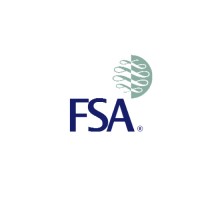
How many more brokers do you expect to censure in the coming year?
Clearly, where we see firms falling below the high standards we expect of them we will consider taking enforcement action.
However, I’m not going to speculate on how many that might be.
Perhaps, a better way to answer the question is to talk about what firms can do to avoid getting into trouble now and in the future.
The FSA is looking towards senior management of lenders to engage effectively with their business to ensure that there are robust mortgage fraud prevention measures in place.
At the FSA’s recent financial crime conference in June, Tracey McDermott, the acting director of the Enforcement and Financial Crime Division at the FSA, highlighted the continued importance of financial crime controls.
She said that the FCA will continue the FSA’s intensive and intrusive supervision of financial crime issues and will also continue “keeping crooks out of finance, encouraging industry to strengthen its defences, and educating and warning consumers about the dangers they may face”.
How many new rules and regulations are coming our way on fraud – what’s the time frame?
Let me clarify this quickly: we’re not introducing any rules – this is proposed guidance arising from our thematic review on mortgage fraud in lenders. The guidance is all contained in our Financial Crime Guide.
The guide provides guidance on the steps firms can take to reduce their financial crime risks but it will not impose new requirements on them. As with all guidance, it is not binding, but it will illustrate ways – but not the only ways – in which firms can comply with relevant rules.
The guide collates existing statements we have made about financial crime, including mortgage fraud, and puts them into a single place in an easily accessible and user-friendly format.
Are lenders likely to reduce their broker panels to protect themselves from fraud risk?
It’s not for the FSA to decide how big or small broker panels should be.
Like those of other intermediary panels, the size of broker panels is a matter for firms to decide, based on how best they think they can manage their business.
During our thematic work, we saw some examples where firms had already decided that their broker lists were in need of review for a variety of reasons, such as a substantial reduction in mortgage lending or a view that the size of the broker panel was bigger than the firm could manage adequately.
Any decisions taken by lenders in this regard will be based on their own business requirements.
How much more scrutiny will networks get under the new regime?
As your readers will know the Financial Conduct Authority (FCA) will be responsible for the conduct and prudential regulation of around 25,000 firms which carry out a very wide range of business in the retail and wholesale banking, investment, securities and insurance markets.
This will include firms within the mortgage intermediary sector.
The overall approach to the conduct supervision of firms will be built and developed upon the FSA’s revised conduct strategy launched during 2010 which took a more proactive and outcomes-focused style of supervision.
Financial crime can be found in any type or size of firm and threatens the FCA’s objectives of consumer protection and integrity.
Financial crime can also distort information and drive the behaviour of market participants.
Therefore, the FCA will be ready to take action in relation to financial crime risk in any of the sectors or markets it regulates.
What more can lenders do to fight fraud?
Firms should have strong incentives to protect themselves against fraud. Our thematic review on mortgage fraud identified a number of examples of what we consider to be good and poor practice.
These are detailed in the guidance included in the Financial Crime Guide and are being consulted on as part of the guide’s consultation process.
The consultation process runs until 21 September 2011, so firms have the opportunity to provide feedback and comment and we would encourage them to do so.
We look forward to the industry’s comments and views over the coming months.















